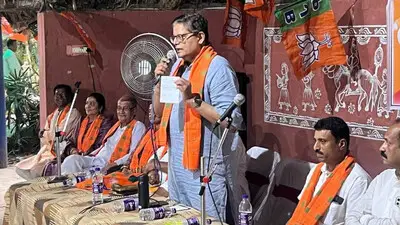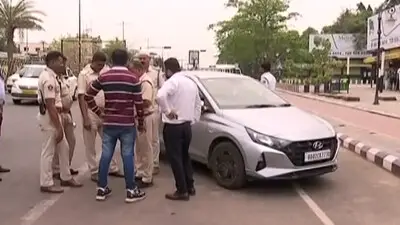Recommended Stories
Kolkata: As the sting of demonetisation continued to spread its numbing effect across most sectors, some art industry experts assert the move will "hugely impact" the overall structure of the business in India. Some felt it has already impaired the affordable art segment, while others opined it's too early to tell.
"It's going to have a huge impact on the art market because a large amount of buying and selling in art in India happens in cash whether people want to acknowledge it or not," acclaimed artist, academician and curator Paula Sengupta told IANS.
Post the demonetisation move, Sengupta said, she faced difficulties in getting two projects off the ground.
However, she felt the ripple effect of scrapping high value notes will tighten the management and coordination of the sector, making it more organised and accountable.
"I think also, in many senses, it will affect the production of art because it has to become a lot more organised. Artists tend to be a bit haphazard and not kind of keeping track of the expenses they are incurring or accounting properly for production cost. Artists are very loose about keeping track of these things. It has to become more organised and the artists and players who market the art have to be more organised," Sengupta explained.
Kishore Singh, head of exhibitions and publications at Delhi Art Gallery (DAG) Modern, said demonetisation's impact will be "felt over some time".
"Art is not something you sell on a daily basis. There are two aspects to it: as an art collector and as an investor," Singh told IANS.
For art collectors and connoisseurs, money is no criteria for judging because people go to great lengths to pursue a work they like. These serious collectors who appreciate art will not be affected, Singh believed.
"As an art collector, when you are passionate and will go to great lengths to acquire a work of art and would strongly want to add to your collection, in that case money is no criteria for judging because people pursue art to great lengths and push to get it. I don't think they will be impacted. Pursuit and possession are ends in themselves," he said.
But for the people on the other side of the fence, the investors, Singh said they will be "sitting, waiting and watching".
"Art as an investment or purchase is such a minuscule activity in this country that its larger impact in terms of demonetisation will only be felt over some time, and by the time you would expect it to be felt I have a feeling the market would be improving in any case. What we have seems to be a short-term impact," he elaborated.
"If at all, there is going to be a minor hiccup," he said.
Auctions in the ongoing month, including Christie's, would indicate whether or not the market is slowing down, Singh said.
At the other end of the spectrum, veteran artist Shuvaprasanna Bhattacharya contended the move has already dented the "affordable art" category, due to the unavailability of cash, particularly small change, with the people.
"Not everyone can afford to go for the expensive collectors' items. People do buy art at fairs and that has taken a step back. If they wish to purchase something within Rs 500, they can't transact the deal with a Rs 2,000 note. Moreover, many such producers do not use point of sale devices," Bhattacharya told IANS, alluding to the recently-concluded art festival at ArtsAcre.
So, how about the growing trend of online galleries and the associated benefits of cashless transactions? Parsing through the situation, Sengupta remained skeptical of demonetisation boosting art online.
"Art is about experiencing the work first hand, unless and until you are simply trying to buy a signature piece and you are making an investment and you don't care what you want to hang on your wall. I don't know if this is going to boost it. Serious art buying doesn't happen that way," she said.
On the issue of black money in the business, and if demonetisation will actually be a nail in the coffin for the fly-by-night dealers, Bhattacharya asserted: "There is black and white everywhere. There are as many police officers as there are crooks."
Singh insisted one doesn't build brands by indulging in corrupt practices.
"Black money is not used to buy art. It is assumed that anyone who is a serious player and is in for the long term, they are concerned about the image they put out and you don't build brands simply by doing stuff like this.
"If there are the oddballs, fly-by-night operators and art dealers, I don't think it is fair to smudge everyone with the same brush," he said.
Sengupta expressed hope demonetisation will check counterfeits.
"It is bound to happen in the long run.. that is definitely going to disappear as a result," she added.













